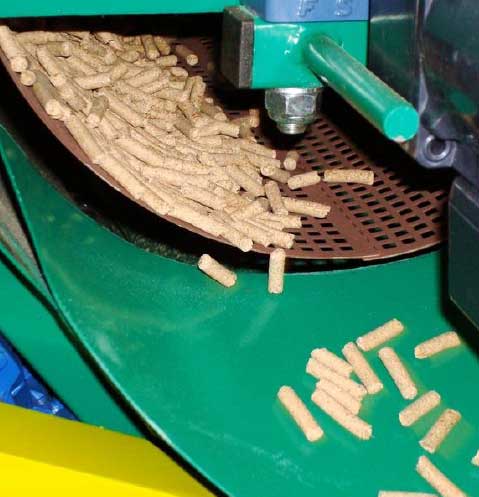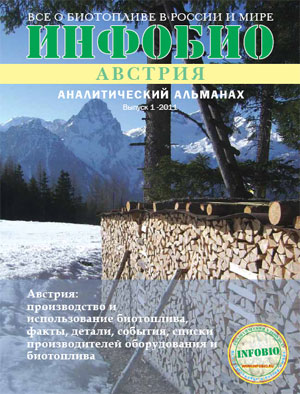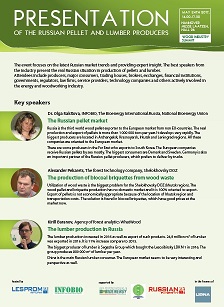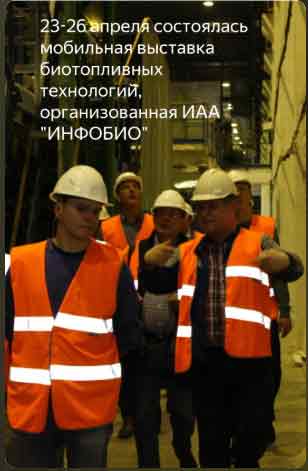The Russian biofuel market is developing very rapidly. There are new positive biofuel and bioenergy tendencies in this country in 2010. The main of them are below.
The biggest plant in Europe t of 1 000 000 t/y close to city of Vyborg in the very west of Russia (Sovetsky in Leningrad Region) is on track to start production in 2010. The plant is a part of the pulp and paper mill Vyborgskaya Cellulose. Industrial pellets will be the main product and 49 years leases for round food of 1 million cubic meters a year will secure the supply of raw materials. All produced pellets will be exported to European power stations.
Other projects of new pellet plants are realized in Russia as well. The group of companies REGION which is managed by the former head of the Federal Russian Forestry Agency Valery Roshupkin is willing to construct the pellets plants in several Russian regions with total annual capacity of 3 000 000 tons of pellets. The main part of this amount should be exported to Europe.
The Russian regions are switching fossil fuels to domestic fuels where the main role is played by biomass. For example, the Republic of Karelia uses wooden biomass in 80% if its municipal boiler houses already. The new CHP on biofuels are constructed in this region as well as in other regions. There are Bioenergy programs in the most Russia regions for the 2010-2013(2014).
The domestic consumption of biofuels in Russia is growing as well as the volume of exported pellets. At the same time the pellet prices were too low in summer 2010 that some biofuel producers stopped their production for some time.
The Russian government and the biggest Russian bank Sberbank started to approve the JI-projects of reducing CO2 in Russia which should be helpful for the developing of biofuel production in Russia as well as for bioenergy production.
The Federal Forestry Agency of Russia is managed directly by the Prime-minister Vladimir Putin (and Cabinet of Ministers) from the end of summer 2010. It should help to the positive development of forestry complex as well as for the wooden biofuel production.
Conclusion: Russia is willing to play one of the main roles in the solid biofuel production in the near future in Europe.






.jpg)
.jpg)
(1).jpg)





.jpg)










.jpg)
